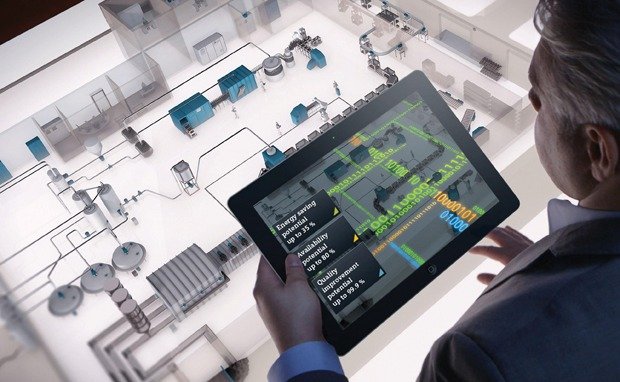Picking the right building management systems companies for implementing your new building management system (BMS) can mean the difference between a smooth functioning solution or years of operational headaches. The available options for building management system companies have dramatically increased, making the selection of a given partner riskier than before. This is especially true for modern commercial and industrial facilities, which come with their own added layers of complexity.
Looking exclusively at the initial price of your building management system is shortsighted. The chosen company will have a critical bearing on all system operations including, but not limited to, performance, energy consumption, maintenance, and system operational dependability. Distinguishing between truly exceptional building management system companies from at best mediocre ones involves analyzing a mixture of the firm’s technical prowess and industry experience, which is best approached from a systematic angle.

Understanding the Building Management Systems Landscape
The past decade saw considerable development within the building management systems industry. The older, simpler model of just controlling the HVAC, has now been paired with more complex systems. These can now have their lighting, security, fire safety, energy, and even IoT functions managed from a single terminal. Such complex systems bring forth with them a new array of building management system companies, which help users reap the maximum amount of benefit from their strengths and areas of specializations.
Today’s modern solutions for BMS systems use up-to-date technologies like AI, cloud computing, and even predictive analytics. These modern technologies allow facilities to control energy use, predict possible failures, and even comfort levels, all at a minimal cost and reduced operational spending. Not all providers, however, have the bandwidth to these complex systems.
The integration issues are even more difficult in industrial settings where BMS must connect to adaptive older automation systems, production machinery, and unique control networks. Businesses in these markets need a different type of insight, more complex from the traditional commercial building applications.
Technical Expertise and Industry Experience
Evaluating Core Competencies
More than one building system and protocol must work in conjunction in order to function properly and achieve the desired output. This creates a need for a diverse set of skills and for other companies to partner up, creating tightly coupled systems.
The more advanced and greater technologies a building management system company has, the better. Such companies have technicians who are experts in older technologies. Advanced building management companies have broad-reaching networks that allow for these complex systems to work without limitations, and make the management simpler.
Another main focus of evaluation centers on system integration skills. The main partner of the project must be able to control the diverse building systems without hindrance. HVAC equipment, security systems, fire safety equipment, lighting controls and energy monitoring tools are all included in these building systems. These intricate systems must be expertly applied as it is more intricate than basic commercial systems.
Assess the company’s experience with the same facilities and applications. The industrial elements are more challenging compared to offices and stores. Industry-focused firms appreciate these differences and are able to foresee issues that might arise in the project execution scheduling or budgeting.
Technology Platform Expertise
Examine the range of technology platforms each potential partner supports. Leading companies typically maintain partnerships with multiple major manufacturers, providing flexibility in system design and component selection. This multi-platform expertise ensures optimal solutions rather than forcing clients into predetermined technology choices.
Cloud-based versus on-premises deployment options represent another important consideration. The best providers offer both approaches and can recommend the most appropriate solution based on your specific requirements, security concerns, and operational preferences.
Project Management and Implementation Methodology
Structured Approach to Project Delivery
Successful building management system installation requires meticulous project management and systematic implementation methodology. Evaluate each potential partner’s approach to project planning, timeline management, and milestone tracking. Companies with mature project management processes typically deliver better outcomes with fewer delays and cost overruns.
Look for providers that employ structured commissioning processes. Proper commissioning ensures all systems operate as designed and meet specified performance criteria. This process should include comprehensive testing, documentation, and performance verification before system handover.
The implementation timeline represents another crucial factor. While faster completion might seem attractive, rushed installations often result in compromised quality and future operational issues. Seek partners who provide realistic timelines with adequate allowance for thorough testing and optimization.
Quality Assurance and Testing Protocols
Comprehensive testing protocols distinguish professional installations from basic implementations. Leading companies employ systematic testing procedures that verify individual component functionality, system integration, and overall performance. This includes load testing, failover scenarios, and performance benchmarking against design specifications.
Documentation quality significantly impacts long-term system maintainability. Ensure potential partners provide comprehensive system documentation, including as-built drawings, programming details, and operational procedures. This documentation proves invaluable for troubleshooting, modifications, and future expansions.
Support Services and Long-Term Partnership
Maintenance and Support Capabilities
The relationship with your chosen provider extends well beyond initial installation. Evaluate each company’s building management system maintenance capabilities and support infrastructure. The best partners offer comprehensive maintenance programs that prevent issues rather than simply responding to failures.
Response time commitments for critical issues represent an important evaluation criterion. Industrial and commercial facilities cannot afford extended downtime, making rapid response capabilities essential. Look for companies that provide 24/7 support with guaranteed response times for emergency situations.
Remote monitoring and diagnostic capabilities have become increasingly important in modern BMS implementations. Partners who offer proactive monitoring services can identify and resolve many issues before they impact operations. This predictive approach reduces downtime and extends equipment life.
Training and Knowledge Transfer
Comprehensive operator training ensures your staff can effectively manage the new system. Evaluate each potential partner’s training programs and documentation quality. The best providers offer multiple training formats including hands-on sessions, online resources, and ongoing education programs.
Knowledge transfer extends beyond basic operation to include troubleshooting, optimization, and system modification capabilities. Look for partners who invest in developing your internal expertise rather than creating dependency on external support.
Financial Considerations and Value Assessment
Total Cost of Ownership Analysis
Initial project costs represent only one component of the total investment. Conduct comprehensive total cost of ownership analysis that includes installation, commissioning, training, maintenance, and eventual system upgrades. The lowest initial bid often proves more expensive over the system’s operational life.
Energy savings potential represents a significant value component for most BMS implementations. Evaluate each potential partner’s track record in delivering measurable energy efficiency improvements. Request specific examples and performance data from similar installations.
Financing options and payment terms can significantly impact project feasibility. Some companies offer flexible payment structures or performance-based contracts that align their interests with your operational objectives.
Performance Guarantees and Warranties
Comprehensive warranty coverage protects your investment and demonstrates the provider’s confidence in their work. Evaluate warranty terms for both equipment and installation labor. Extended warranty options provide additional protection for critical installations.
Performance guarantees represent the highest level of provider commitment. These agreements specify measurable outcomes such as energy savings, response times, or system availability. While not all projects warrant performance guarantees, they provide valuable risk mitigation for critical applications.
Regional Considerations and Local Support
Understanding Regional Requirements
East African markets present unique considerations including climate conditions, infrastructure limitations, and regulatory requirements. Companies with regional experience understand these factors and can design systems accordingly. Local knowledge proves particularly valuable for navigating regulatory requirements and obtaining necessary approvals.
Supply chain management becomes critical in regions with limited infrastructure. Evaluate each potential partner’s ability to source components, manage inventory, and provide replacement parts when needed. Companies with established regional supply chains offer superior support capabilities.
Local Presence and Accessibility
Physical proximity significantly impacts response times and ongoing support quality. While some specialized services can be provided remotely, many maintenance and troubleshooting activities require on-site presence. Local offices or service centers provide faster response times and better customer service.
Consider the company’s investment in local staff and infrastructure. Providers who invest in regional capabilities demonstrate long-term commitment to the market and their customers. This commitment translates into better support and more stable partnerships.
Making the Final Selection

Evaluate a combination of elements in the multi-criteria evaluation model in a specific order. In this case, assigning weights to various elements should be tailored to specific preferences. It is best to derive the main components of the scoring matrix first and apply the structure to incorporate all of the relevant criteria.
Perform detailed discussions regarding the outcomes, the support received, and overall satisfaction to remember the most relevant outcomes. It is best to focus on interviews with comparable projects for the most reliable conclusions.
In the end, the decision lies in choosing a partner who offers the best combination of technical skills, dependable support, and value for money. The top building management systems companies I partner with fulfill all these requirements and more, demonstrating a sincere commitment to fostering the success of your project.
For more than 75 years, IET has provided innovative solutions in electrical engineering and earned a reputation for excellence in building management systems and industrial automation throughout East Africa. IET’s over 150 specialists in Kenya, Uganda, and Tanzania, with their keen understanding of the region, are equipped with the latest technologies to ensure optimal performance for your facility. From the initial design to the long-term maintenance, our multidisciplinary strategy guarantees your building management system earns unmatched value throughout the various stages of its operational life. Reach out to IET now and learn our proven strategies to improve the efficiency and reliability of your facility.
